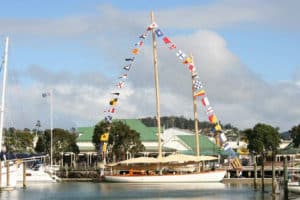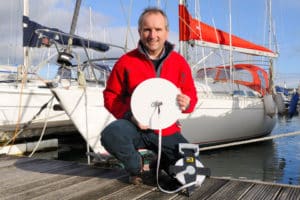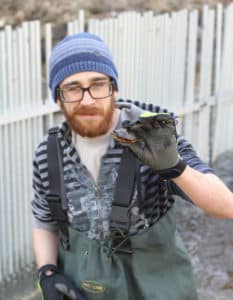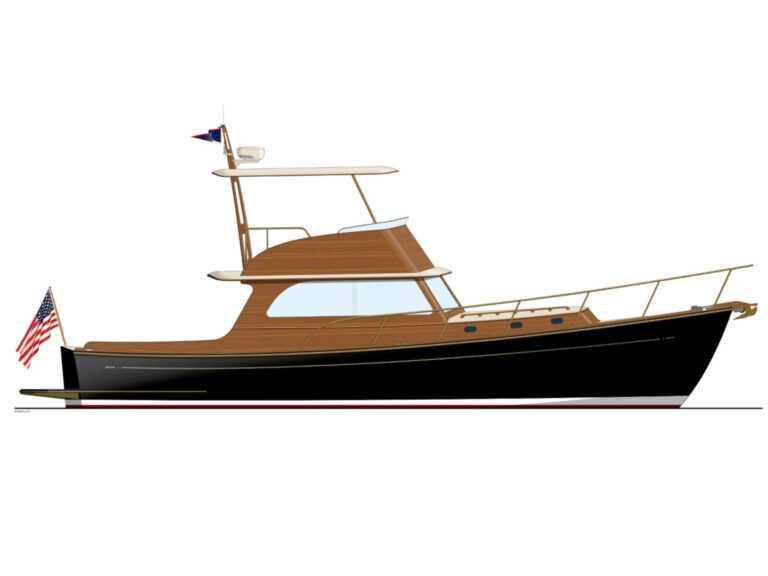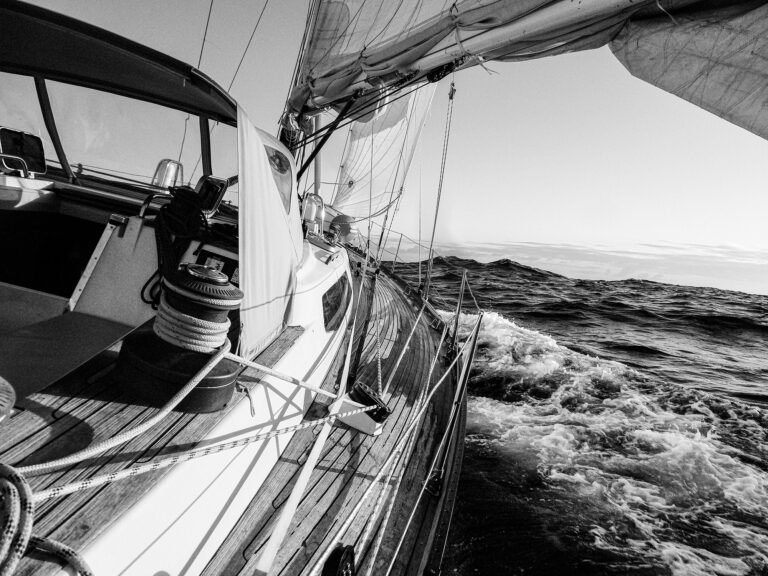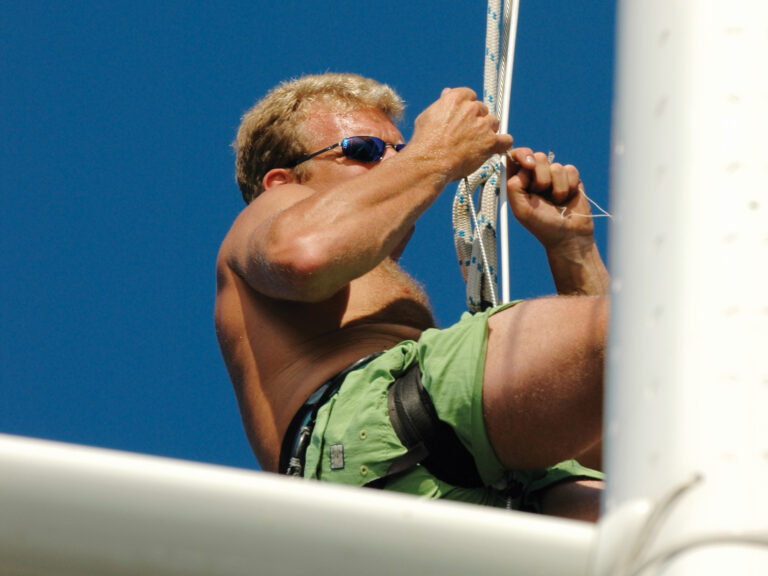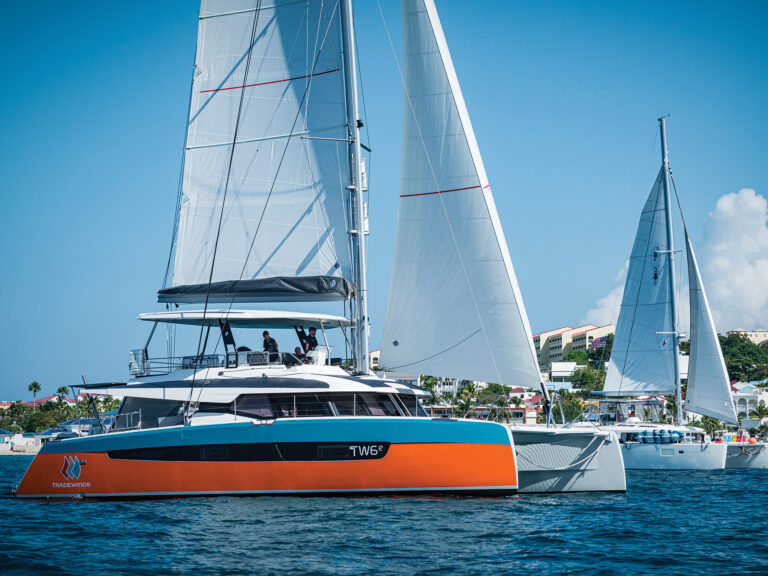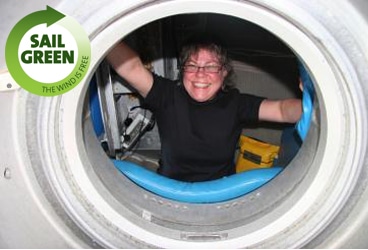
Sail Green
Seasick, by Canadian writer Alanna Mitchell, isn’t a tale of a hapless transatlantic stowaway who has to reach for the bucket.
But any sailor can understand why I recommend it. This award-winning work probes in intricate detail the impact of human activity on the ocean by taking readers around the world with scientists who are gathering data. Their findings, told through Mitchell, relay a message about the consequences of this activity to the planet overall.
“Ocean change is extremely serious,” she writes in the epilogue, “but we have some power to halt or reverse it if we alter our actions rapidly, profoundly, and en masse.”
Among other credits, Mitchell is the 2010 winner of the Grantham Prize, which is administered by the Metcalf Institute for Marine and Environmental Reporting, housed at the University of Rhode Island’s world-renowned Graduate School of Oceanography. It was there that I met her. While not a sailor, she eagerly agreed to answer a few questions for the CW community.
CW: Congratulations on winning the 2010 Grantham Prize for Seasick:_ _The Global Ocean in Crisis. What compelled you to write this book? How long did it take you to research and write it?
A. I had a burning curiosity about how the ocean works biologically on the planet and that led me to scientists who are doing cutting-edge work on the ocean. I just became fascinated with the ocean. I read up on the scientific literature on the ocean for a couple of years and then did the 13 journeys with scientists and other experts for the book over two and a half years. Then it took me about eight months to do the writing, all in one go.
_ __CW_: The tone of the book is quiet, reflective, detailed, intense, and urgent. Your words reverberate about carbon dioxide, oxygen, phytoplankton. It makes the reader feel like the clock is ticking. Can you give CW a status report on planet Earth and her waters are at this juncture?
A. The clock is ticking. If the global ocean were a patient, all its vital signs would be moving in the wrong direction. Through our actions, humans have unwittingly changed the basic chemistry of the ocean, making less capable of supporting the kind of life that we know and love. The main issue is that we’re putting so much carbon dioxide into the air from burning fossil fuels that it’s mixing with sea water to form huge amounts of carbonic acid.
That’s making the ocean more acidic. So far, it’s 30 per cent more acidic than before the Industrial Revolution, making it more acidic than it’s been in 55 million years. And that’s endangering coral reefs, plankton, anything with a calcium shell and even fish and vulnerable animal embryos.
CW: CW editor Herb McCormick returned late last year from voyaging Around the Americas aboard Ocean Watch, the 64-foot steel cutter. The crew included scientists conducting oceanographic and atmospheric research.
You too spent time aboard vessels, all over the globe, with scientists engaged in scientific research endeavors. And certainly there are other expeditions engaged in scientific study of ocean acidification. These efforts seem to be random, as opposed to centrally organized. Are you aware of a single global repository to relay details about these efforts?
A. Some of the scientific investigation on the ocean is random, having to do with where the scientists live or where they’re personally interested. But a great deal of it has been centralized through the Census of Marine Life , a billion-dollar, decade-long investigation into ocean life of the past, present, and future whose results were published last fall. As well, the blue-ribbon Intergovernmental Panel on Climate Change, which so far hasn’t looked closely at the ocean, is collating ocean findings for its next report, AR5, which should be out in a few years.
CW: Has the book wound up in any school curriculum?
A. It’s being used in many schools and universities in the U.S. and other countries.
CW: Many sailors who cruise close to home as well as all over the planet want to know how they can get involved individually, aboard their own boats, to help stem pollution, gyres, dead zones, and ocean acidification.
Given that you approached this topic from a perspective outside the niche of recreational sailing or the liveaboard cruising lifestyle, can you make any suggestions, based on your experiences?
A. The big issue has to do with carbon dioxide. So it’s a case of trying to inspire the whole human species with a passion for reducing its carbon footprint. Because sailors are so in love with the sea, they will come up with all sorts of highly creative ways of helping move our species toward that.
CW: Is there a message that you would relay specifically to sailors since you’ve published this book?
A. Help spread your love of the sea and your deep knowledge of it to others!
CW: what’s ahead? Another book?
A. Yes! It’s top secret at the moment though!

